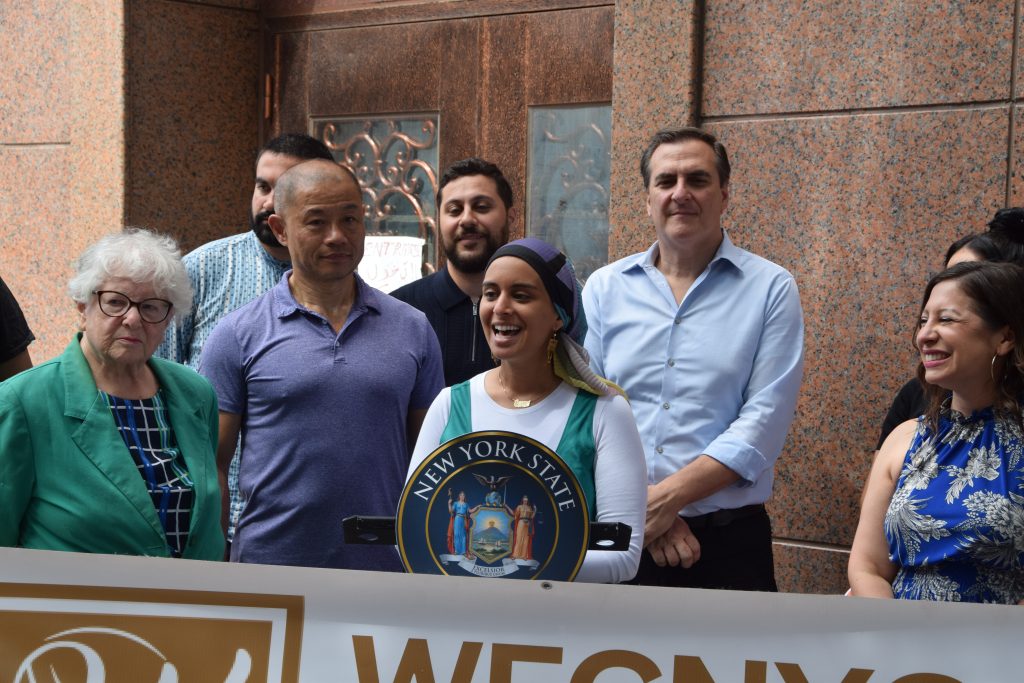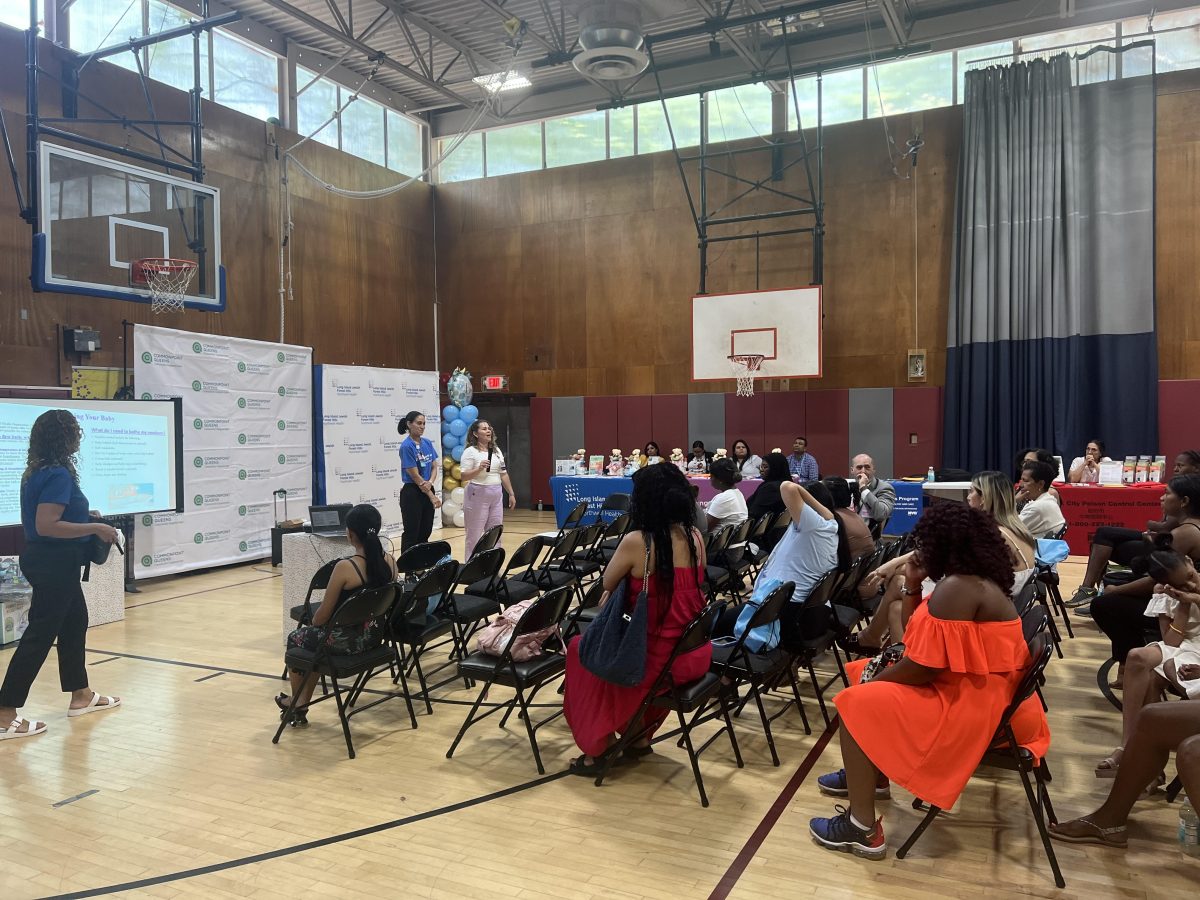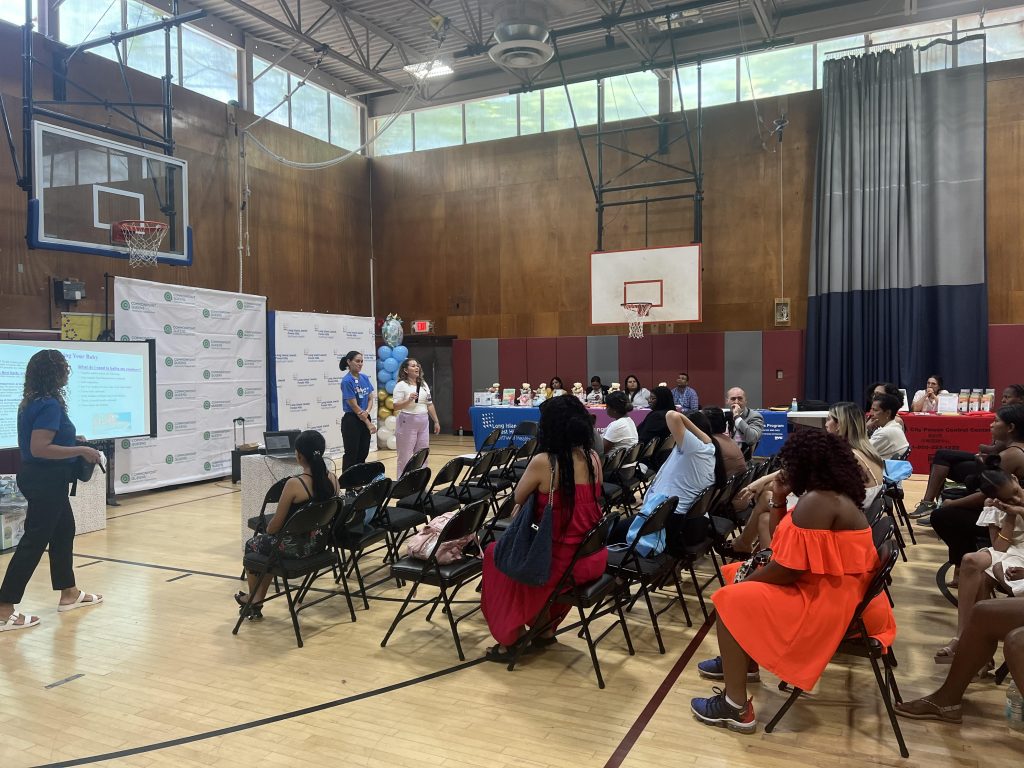New York Legislators and Advocates Urge Governor to Sign MENA Data Disaggregation Bill

Credit: Sen. Mike Gianaris
By MOHAMED FARGHALY; JEAN BRANNUM | mfarghaly@queensledger.com
Politicians and community advocates gathered on Steinway St on June 20 calling for
Governor Kathy Hochul to sign a bill recognizing Middle Eastern and North African
people as individual ethnicities in New York state. State Senator Michael Gianaris and
Assembly Member Jessica González-Rojas led the rally urging the Governor to sign the
legislation that would disaggregate data concerning Middle Eastern and North African
(MENA) communities in New York State from the white demographic category.
The bill, known as S6584B/A6219, mandates that state agencies collecting demographic
data on ancestry or ethnic origin separate MENA populations from the broader white
category. This move aims to provide clearer insights into the needs of MENA
communities, which advocates argue are often overlooked due to their current
classification.
Middle Eastern and North African people, commonly referred to as MENA, have long
been counted as “White” in the census and state demographic data. The bill, which was
passed in the state assembly and senate, will create a separate category for people
who self-identify as MENA. Sen. Mike Gianaris, whose district includes parts of Astoria,
Sunnyside, and Maspeth, were the main sponsor of the bill.
Advocates highlighted that despite estimates suggesting a MENA population exceeding
280,000 in New York, current data likely undercounts them due to their categorization as
white. The legislation seeks to rectify this by allowing MENA individuals to be
accurately represented in state demographic records.
The rally, held at Astoria’s Al-Iman Mosque, drew support from a coalition of legislators
and community leaders including State Senator John Liu and Assembly Member Zohran
Mamdani, as well as representatives from organizations such as Malikah and NY MENA
Coalition.
Gianaris said that Rana Abdelhamid, founder of anti-violence advocacy group Malikah,
brought the issue to his attention and was one of the speakers at the press conference.
“We hope that Governor Hochul will support this legislation to ensure that Middle
Eastern and North African New Yorkers are seen, represented, and resourced by their
government,” Abdelhamid said. “After months of organizing in coalition with over
a dozen Middle Eastern and North African organizations across New York,
we’re so glad to see that the MENA data disaggregation bill has passed
the NY state assembly. We’re grateful for the leadership of Deputy Majority
Leader Gianaris and Assemblymenber González Rojas. We hope that
Governor Hochul will support this legislation to ensure that Middle Eastern
and North African New Yorkers are seen, represented and resourced by
their government.”
The push for disaggregation comes amid broader federal efforts, with the Biden
administration recently approved new census options to identify “Middle Eastern or
North African;” individuals separately. New York State’s initiative, if signed into law,
would precede federal action, underscoring its role as a trailblazer in ethnic data
collection.
The 2030 census will have a MENA category for the very first time, the White House
announced in March of this year. The New York Senate bill says that data specific to
MENA individuals will help identify specific health and socioeconomic disparities.
Gianaris mentioned that the government cannot serve communities if there is little data
to show where the MENA communities are.
MENA experienced higher death tolls due to COVID-19 than other racial and ethnic
groups, but government data did not reflect the disproportionate number, according
Salma Mohamed, Associate Director of Advocacy and Engagement at the Arab
American Family Support Center.
State Assembly member for the area Zohran Kwame Mamdani pointed out that a lot of
data collection related to MENA is for negative surveillance. This bill, he said, will be a
positive reason to collect data on MENA people.
“For far too long, Middle Eastern and North African New Yorkers have been afforded
data disaggregation only in matters of surveillance and suspicion,” Mamdani said. “The
time has come for that to be applied for the purposes of state support, instead of the
policy of erasure that we have today.”
Assemblymember Jessica Gonzalez Rojas was another advocate for the bill. Rojas
talked about how when she gained parts of Astoria after redistricting, her district jumped
from 11% white to 27% white after gaining north Astoria. She believes that the data
does not accurately reflect her district.
The coalition emphasizes that disaggregating MENA data will enable more targeted
solutions to address longstanding disparities in healthcare, economics, and education.
Urging Governor Kathy Hochul to swiftly sign the bill into law, the coalition believes
This legislation will pave the way for greater recognition and support of MENA
communities, fostering a more inclusive and equitable New York State.
This proposes similar changes that were approved for Asian American and Pacific
Islander (AAPI) people in 2021. Sen. John Liu pushed for the governor to take “the next
step” in recognizing a group of people hidden in the census.
“The NY MENA Coalition is heartened to announce the successful passage of the Middle
Eastern and North African (MENA) data disaggregation bill by both the New York State
Senate and Assembly,” NY MENA Coalition said in a statement. “We look forward to
the Governor’s positive response and are hopeful that with her support, we can take this
significant step towards greater inclusivity and equity for the Middle Eastern and North
African community in New York.”



